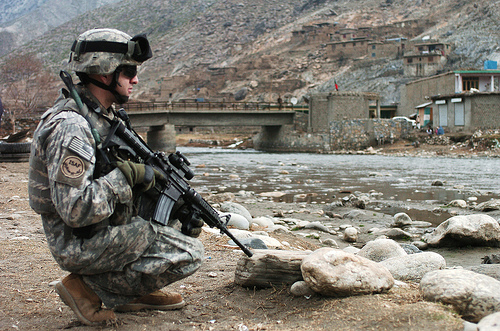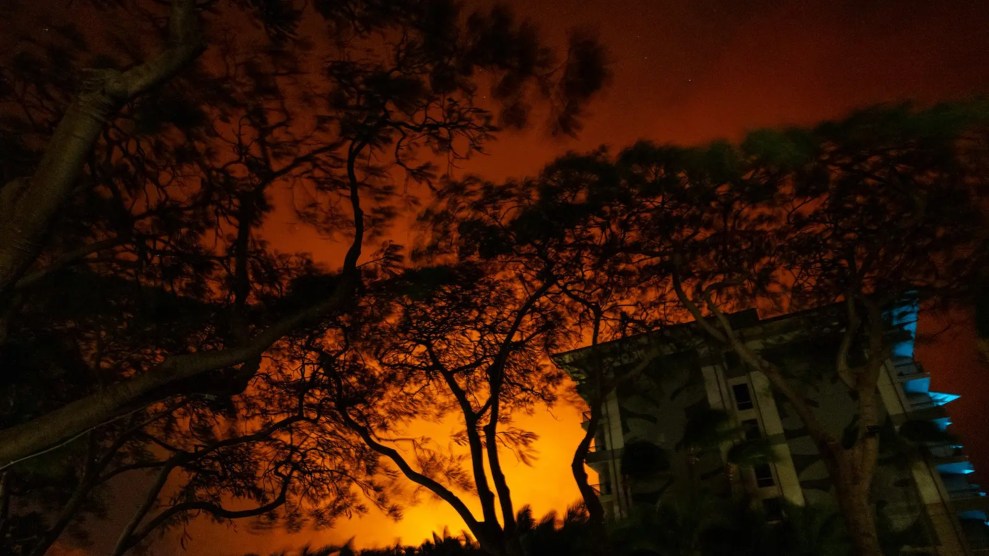Anand Gopal, a war correspondent in Afghanistan for the Wall Street Journal and formerly the Christian Science Monitor, has a superb, year-long investigation out today on the US’ raids, “black site” detention cetners, and “Black Jail” at the Bagram air base in eastern Afghanistan. The story, co-published by TomDispatch.com and The Nation magazine, is the first of its kind to report on the shadowy counterterror and torture methods used by the US in Afghanistan, a war led in large part by a general, Stanley McChrystal, who made a name for himself leading these same kinds of under-the-radar missions. For his report, supported by the Fund for Investigative Journalism, Gopal interviewed dozens of Afghans, some of whom had either been kidnapped and tortured themselves (and lived to tell about it) or who knew people who’d been disappeared or killed during this night-time raids.
As Gopal points out, these kinds of missions undermine the US’ entire presence in Afghanistan:
Sometime in the last few years, Pashtun villagers in Afghanistan’s rugged heartland began to lose faith in the American project. Many of them can point to the precise moment of this transformation, and it usually took place in the dead of the night, when most of the country was fast asleep. In the secretive U.S. detentions process, suspects are usually nabbed in the darkness and then sent to one of a number of detention areas on military bases, often on the slightest suspicion and without the knowledge of their families.
This process has become even more feared and hated in Afghanistan than coalition airstrikes. The night raids and detentions, little known or understood outside of these Pashtun villages, are slowly turning Afghans against the very forces they greeted as liberators just a few years ago.
In addition, he reports on the presence of a “Black Jail” at Bagram air base and nine official holding jails in Afghanistan, known as Field Detention Sites, usually comprised of a few cells walled off with plywood and used for interrogation purposes. Gopal’s story retells the experiences of individual Afghans who were detained and tortured by US forces:
One of these former detainees is Noor Agha Sher Khan, who used to be a police officer in Gardez, a mud-caked town in the eastern part of the country. According to Sher Khan, U.S. forces detained him in a night raid in 2003 and brought him to a Field Detention Site at a nearby U.S. base. “They interrogated me the whole night,” he recalls, “but I had nothing to tell them.” Sher Khan worked for a police commander whom U.S. forces had detained on suspicion of having ties to the insurgency. He had occasionally acted as a driver for this commander, which made him suspicious in American eyes.
The interrogators blindfolded him, taped his mouth shut, and chained him to the ceiling, he alleges. Occasionally they unleashed a dog, which repeatedly bit him. At one point, they removed the blindfold and forced him to kneel on a long wooden bar. “They tied my hands to a pulley [above] and pushed me back and forth as the bar rolled across my shins. I screamed and screamed.” They then pushed him to the ground and forced him to swallow 12 bottles worth of water. “Two people held my mouth open and they poured water down my throat until my stomach was full and I became unconscious. It was as if someone had inflated me.” he says. After he was roused from his torpor, he vomited the water uncontrollably.
This continued for a number of days; sometimes he was hung upside down from the ceiling, and other times blindfolded for extended periods. Eventually, he was sent on to Bagram where the torture ceased. Four months later, he was quietly released, with a letter of apology from U.S. authorities for wrongfully imprisoning him.
The piece is absolutely worth reading in full. It sheds light on the secrecy surrounding these detention centers, the torture taking place in this facilities, and the fear among Afghans of being the next person swept up in a violent night-time raid—all crucial elements of the US war in Afghanistan that haven’t been reported anywhere else yet without which our understanding of the Af-Pak war is incomplete.















